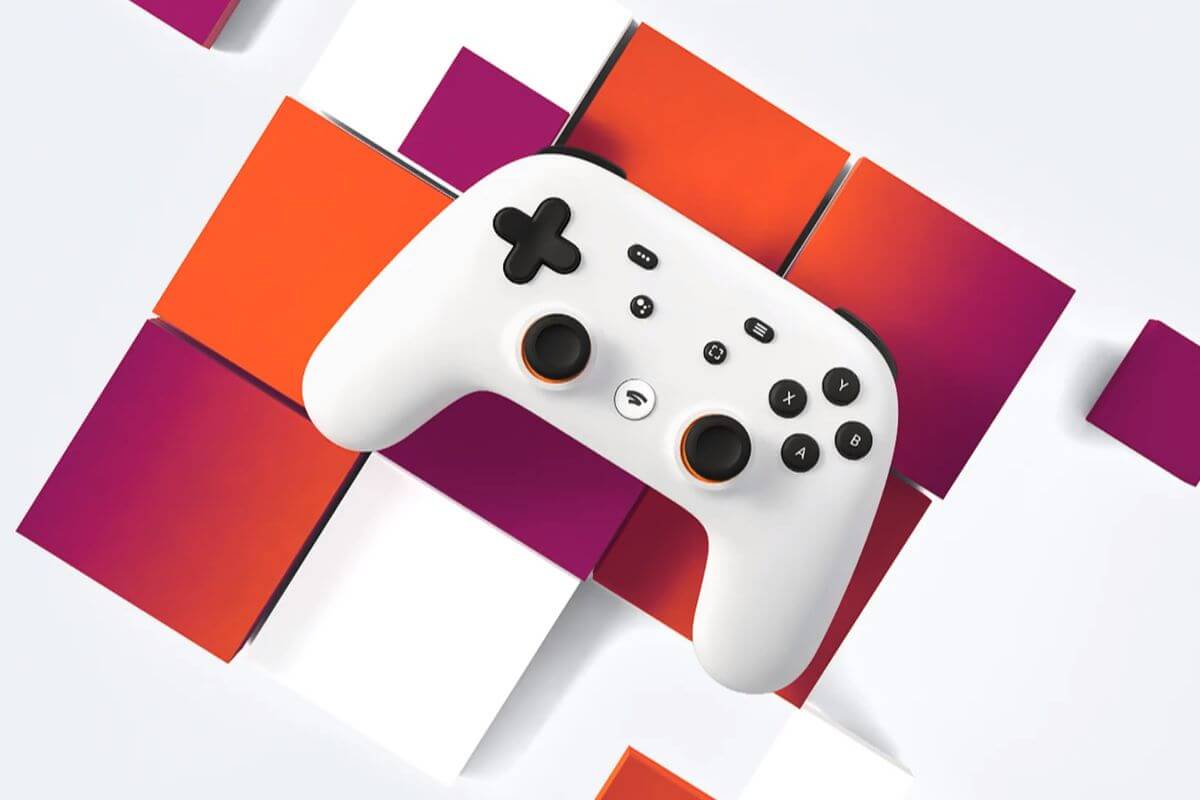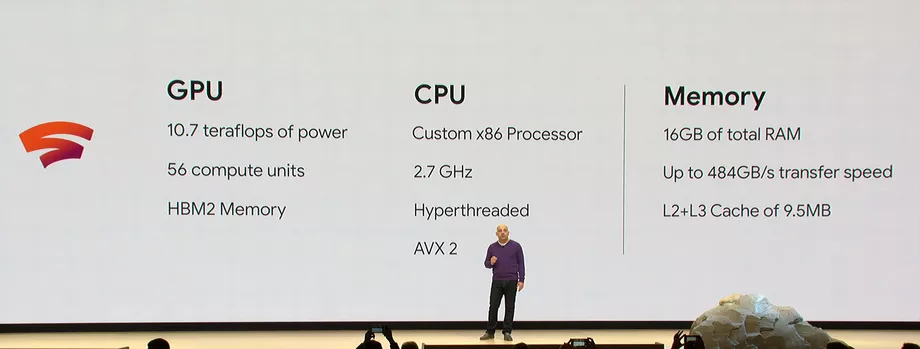Bottom line: Google is positioning its new Stadia game streaming service to outperform its console rivals. Given the scale of Google's architecture, it could give the company a huge advantage in the cloud gaming market and provide a great value for casual gamers if they price it competitively.

Earlier today at GDC, Google announced Stadia, their entry into the game streaming market that is quickly heating up. During the presentation, the company talked up the advantages of utilizing their datacenters to scale performance far beyond that of traditional consoles. In fact, Google claims Stadia is more powerful than both Xbox One X and PS4 Pro combined.
Similar to Microsoft's upcoming xCloud, Stadia uses custom-built servers to physically run games. Google partnered with AMD to ensure each server contains an x86 AMD processor running at 2.7Ghz, 16GB of RAM, and a custom AMD GPU that boasts 10.7 teraflops of performance. Google openly compared Stadia to both Xbox One X and PS4 Pro which run at 6 teraflops and 4.2 teraflops, respectively.
Now, by this time I'm sure TechSpot readers are rolling their collective eyes considering many of you build high-end gaming PCs in your sleep. Also, a teraflop isn't necessarily the best indicator of performance, but for comparisons sake, just humor me.

An Nvidia GTX 1060 6GB is about 4.4 teraflops, while a GTX 1070 is 6.7 teraflops. However, moving up to a GTX 1080 yields about 9 teraflops and the RTX 2080 is much closer at 10.1 teraflops. This means that Stadia's performance is at least on par with an RTX 2080. On the AMD side, Stadia's performance equates roughly to an RX Vega 56 on paper although in practice the GeForce is much, much faster.
I make this comparison to point out the value proposition. Microsoft claims that it wants to bring console quality games to every device. However, what if you could bring PC gaming performance to every device? Depending on how Google monetizes Stadia, it may be worth to simply pay around $20 per month for high-end PC gaming. Considering that a mid to high-end graphics card will cost you at least $350, it would take over a year of paying for Stadia to equal the cost of say an RTX 2060, let alone an RTX 2080 which is closer to $730.
For now, Google is promising gameplay at 4K running at 60 frames per second with HDR. That's already better than a lot of gaming rigs out there with Google planning an insane 8K/120fps in the future. Google promises that the scale of its cloud infrastructure will allow gaming at unprecedented levels. With the right pricing and games, Google may be well on its way to becoming the market leader in cloud gaming.
https://www.techspot.com/news/79272-google-stadia-more-powerful-than-xbox-one-x.html